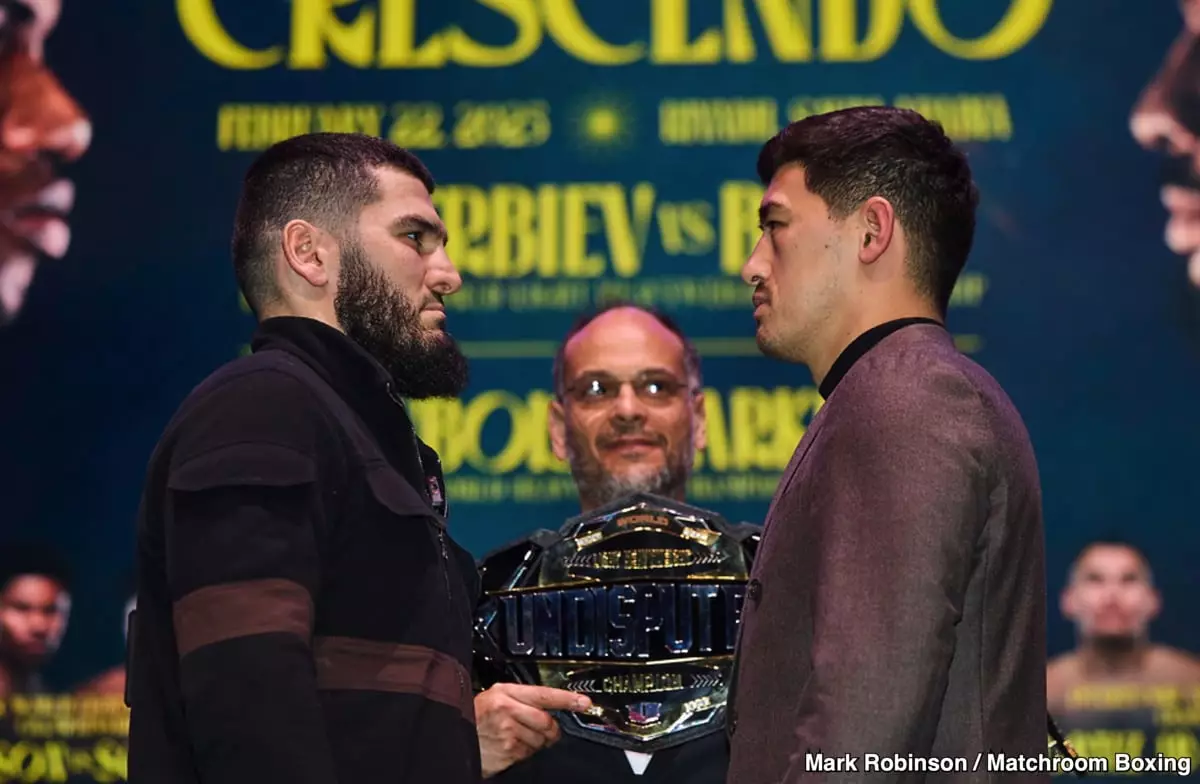Artur Beterbiev’s recent comments cast a spotlight on a universal truth in combat sports: age is an unforgiving adversary. At 40, Beterbiev is approaching an age where most boxers have long since transitioned to roles outside the ring or retired altogether. His physique and skills might buck the trend of decline, but the relentless march of time remains a formidable opponent. For fighters at his age, each fight is not just about victory but about fighting against the inevitable decline. The anticipation of a third bout with Dmitry Bivol, therefore, is more than a sporting event; it’s a test of endurance and resilience.
The fact that Beterbiev openly questions whether he’s being “aged out” underscores the brutal realities of fighter longevity. He understands that waiting too long could diminish his chances, not only because of aging but also because of the potential shift in the competitive landscape. The clock is a silent, ever-present rival that can shift momentum in ways no opponent can. When fighters push through their physical limits at such advanced ages, they aren’t just risking injury—they’re risking their legacy.
Strategic Delays as a Defensive Tactic?
The recent developments surrounding the fight’s location and scheduling reveal more than just logistical considerations—they expose the calculated strategies fighters and promoters often employ. Bivol’s apparent preference to delay the third fight, possibly aiming to extend the timeline, could be viewed through a skeptical lens. Is this an attempt to wear down Beterbiev physically and psychologically? Or, from Bivol’s perspective, is he simply stalling to ensure optimal conditions or prevent injuries before stepping into the ring again?
Historically, fighters have used timing to their advantage, especially when facing a seasoned opponent whose prime years may be waning. Floyd Mayweather’s career, for example, was riddled with tactical postponements and calculated fights that kept him at the top longer. These tactics, while often criticized, are rooted in a desire to maximize one’s career longevity and championship potential. But the question remains: are these negotiations genuine or shaped by strategic self-preservation?
The decision to potentially shift the fight from Saudi Arabia to Russia adds another layer of complexity. Fighters and promoters are often motivated by financial incentives, audience demographics, and geopolitical considerations. But for fans and pundits, what matters most is the anticipation of witnessing a memorable trilogy—fights that challenge the very fabric of sport and leave a lasting legacy.
The Fragile Balance Between Legacy and Reality
For Beterbiev, a victory in the anticipated trilogy isn’t merely about adding a chapter to his career—it’s about cementing his status among boxing’s elite. But with every passing day, the risk of decline grows. It becomes a psychological battle as much as a physical one. Beterbiev’s frustrations, expressed in candid social media posts, reveal a man acutely aware of time slipping away and the importance of seizing the moment.
Bivol, on the other hand, may harbor his own anxieties. As a younger competitor, he might see a delayed fight as an opportunity to prepare more thoroughly or to catch Beterbiev at a weaker moment. The dance of timing becomes a game, a chess match played with both skill and patience. Yet, this strategic delay could undermine the very essence of sports competition—the desire to test oneself against the best, in the moment.
The potential postponement also raises broader questions about what boxing has become. Is it solely about athletic prowess and competitive spirit, or has it become a calculated game of negotiations, scheduling, and strategic delays? Fans, after all, yearn for confrontation rooted in the pursuit of glory, not just contractual flexibility.
The Impending Shadow of Age and the Future of the Rivalry
The horizon for the Beterbiev-Bivol rivalry grows increasingly uncertain. If the third fight is delayed further or doesn’t happen at all, it leaves a lingering sense of unfinished business. More than that, it raises fundamental questions about the nature of sport: how long can fighters sustain their dominance, and when does the desire for legacy outweigh the realities of aging?
At this critical juncture, Beterbiev’s age might serve as a double-edged sword. It lends urgency to his pursuit of a definitive showdown, yet it also makes victory more daunting the longer the wait. Bivol, aware of this scarcity of time, could be waiting out Beterbiev’s window, making strategic moves in hopes of securing a more favorable outcome.
As fans, we are left holding our breath, hoping that the fighters’ desire for greatness outweighs the strategic manipulations born of aging and career longevity. Their saga remains a testament to the brutal beauty of boxing—where greatness is often measured not just by talent, but by timing, strategy, and the relentless passage of time.

